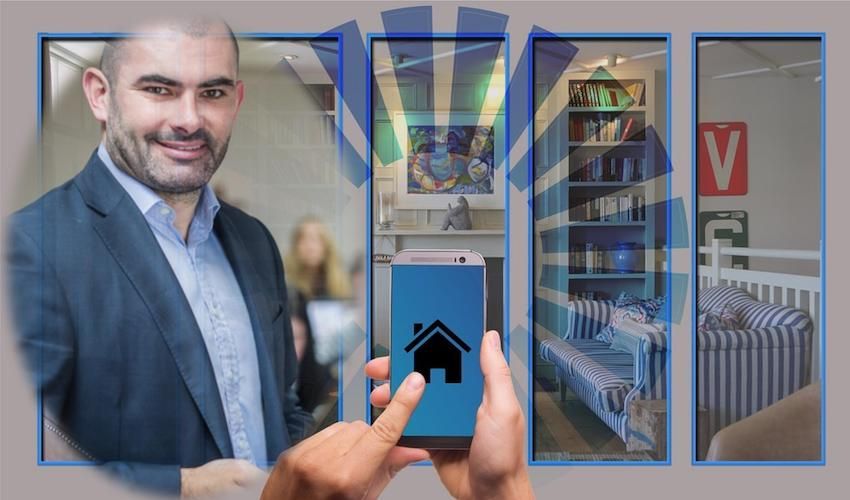

Education trends change every year, but the thread which continues throughout is getting the right balance between exams and project-based coursework.
Does the fact that you can recall lots of facts in a stressful exam environment mean you should get better grades? Or are exams an efficient method of testing understanding, critical thinking and knowledge.
Express columnist Rory Steel wants you to get involved in the debate on how our children are taught - after all, what could be more important for the island's future?
"Changing education is not a quick process, ask any teacher, there are of course pros and cons to this. Fads in education come thick and fast, many of which turn out to do more harm than good. The most prevalent 'neuromyth' to still raise its head is ‘Learning Styles’, an idea that we all have preferences to learning by using either visual, auditory or kinetic methods (VAK).
Many people identify with the premise of this concept, but it has no scientific basis, and continual fads make teachers wary of pedagogical change. Many subject’s curriculums have to change, however, new facts emerge in science and technology, particularly new books, poetry, music and art become part of society. Times change.

Pictured: fashions change continually in education.
Right now, rigor is a dirty word in education. The legacy of Michael Gove as Secretary for Education lingers on nearly a decade after his appointment in 2010. He believed that a classical Oxford education was the perfect model for him, therefore, all students across the country also. His vision to improve education was to make it more rigorous and by that he meant recall more facts. This rigor came at the expense of vocational skills; the vocational qualifications were questioned, devalued and vilified. He feigned to walk back the fantasy of his utopian one fit size all model of learning at the end of his tenure but the damage had already been done and is still reverberating even now. He was responsible for changing GCSE’s from A*-G to 9-1.
To those outside of education the idea seems arbitrary, a simple move from an imperialistic letter system to a modern metric one, what’s the problem? With Machiavellian subtlety, Gove raised the ‘pass’ rate. Simply, he split the C in two, a 4(C-) and a 5(C+). He stated that a 4 is still a C, just a low one, he did this because he knew employers would start to ask for 5’s and above as a minimum requirement for interview rather than a C over time. It was a way of making higher paid jobs harder to access for those that did not succeed in his new rigorous educational world based on fact recall. What’s the problem with wanting employees to have better grades? Times change.

Pictured: the grading system has been changed, from from A*-G to 9-1.
Why the brief history of Michael Gove? Industry regularly laments at the lack of skills coming through from schools and colleges. I strongly believe Gove’s vision had a strong influence on the skills gap. The world changes, fact recall is no longer the mark of intelligence in a more technological age. We need creative problem solvers, not encyclopedic memories. Soft skills are in high demand but they aren't 'osmosed' from mere existence, children need to participate in projects designed to challenge, designed to accept failure. “Failing fast” is a common term in the entrepreneurial world, an essential part of the learning process but there is no time for it in the present educational model. Slowly and silently the sheer content to arbitrarily recall in each subject’s curriculum as grown over the years.
We’ve gone from students studying 8-10 GCSE’s to much more commonly 10-12+. It isn’t just the number of subjects but the content within each has significantly escalated. Coursework has all but disappeared, project work has dried up, is it any wonder soft skills are poorer? The students don’t get the time to practice; the time to fail and learn from their mistakes has evaporated. Failure takes time, vitally important time that is now focused on passing exams and recalling facts.
The mental effects of this on our young children are clear to see, there is more to it than educational rigor but it is a significant toll. A culture which doesn’t accept failure adds pressure to young impressionable minds that continues into adulthood. It’s time to change.
If you’re an employer that values more than fact recall, a parent that wants a more rounded education with greater options, a teacher in the system or more importantly a student experiencing the issues, the Government of Jersey is giving you a chance to have your say on change. The Big Education Conversation has started and continues until the 10th January 2020. Make no mistake, this is a rare opportunity to fundamentally shape the Government's vision of education. We will continue to follow the rigourous UK model if no one speaks up.

Pictured: where should Jersey look to, for educational inspiration?
There are so many good examples of how education can be more positive around the world. Australia is a big proponent of project-based learning to encourage problem solving and teamwork while Finnish students have far less homework, start school at 7 years old, yet rank near the top of the world rankings in maths, reading and science. Montessori-style learning through play schools have shown promise across the world, and the innovative New Zealand model that actively encourage students to publish their work on the internet are all being trialed to improve education.
I believe we have to be careful not to covet educational models without understanding the cultural differences that enable their success. Asian models are difficult to replicate, Singapore always scores highly in the world rankings, but teaching is a high-status profession, usually in the top third of their class with a pay packet to match. Long school days permeate the Chinese model: 8 hours a day with many hours of homework each night with studious weekends to match.
The common thread of successful models that would be more easily adopted here is a reduction of examined subjects which would be replaced with more practical real-life project based work to improve skills and a rise in vocational options. The rise of vocational subjects is a nod to the past, offers greater choice and a long overdue fix to the inflexible ‘academic’ model we find ourselves in but the Government needs to know what direction we want to travel as a community.
Like voting, nothing fundamental will change without the public speaking out. Hopefully you agree with the direction of travel I’ve laid out, maybe you don’t.
Either way you need to speak up or times won’t change.
You can complete the survey here, and more about the consultation here.
Comments
Comments on this story express the views of the commentator only, not Bailiwick Publishing. We are unable to guarantee the accuracy of any of those comments.